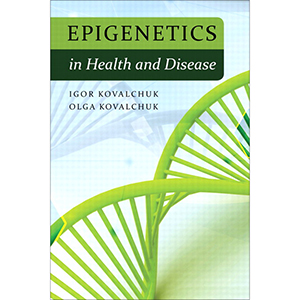Epigenetics in Health and Disease
This is the first comprehensive, authoritative, and easy-to-understand introduction to modern epigenetics. Authored by two active researchers in the field, it introduces key concepts one step at a time, enabling students at all levels to benefit from it. The authors begin by presenting a historical overview that places epigenetics in context, and makes it clear that the field is not (as some presume) completely new. Next, they introduce and explain key epigenetic mechanisms, and discuss the roles these mechanisms may play in inheritance, organism development, health and disease, behavior, evolution, ecology, and the interaction of individual organisms with their environments. Coverage includes:
non-coding RNAs in each kingdom
allelic interactions
CRYSPR
gene silencing
epigenetics of germline and epigenetic memory
epigenetic regulation of genome stability and plant stress response
and much more
The authors conclude by offering significant new insights into how knowledge of epigenetics and epigenomics may promote the development of technologies and solutions in areas ranging from behavioral neuroscience to cancer treatment, toxicology to the development of hardier crops.
From the Back Cover
An Authoritative and Accessible Introduction to Epigenetics
Emerging discoveries about the deep linkages between genetics and environment
Understanding reversible mechanisms of heredity that do not modify DNA sequence
From cancer to psychiatry: what bioscientists are learning about epigenetics and disease
This is the first comprehensive, authoritative, and easy-to-understand introduction to modern epigenetics. Authored by Igor Kovalchuk and Olga Kovalchuk, two active researchers in the field, this book introduces key concepts one step at a time, enabling students at all levels to benefit.
After reviewing the field’s history and context, the authors introduce and explain each key epigenetic mechanism. Next, they extensively discuss the roles these mechanisms may play in inheritance, development, health and disease, behavior, evolution, ecology, and the interactions of individual organisms with their environments.
The authors conclude by offering significant new insights into how knowledge of epigenetics and epigenomics may promote the development of technologies and solutions in areas ranging from behavioral neuroscience to cancer treatment, and toxicology to the development of hardier crops.
Book Details
Hardcover: 608 pages
Publisher: FT Press (May 2012)
Language: English
ISBN-10: 013259708X
ISBN-13: 978-0132597081




